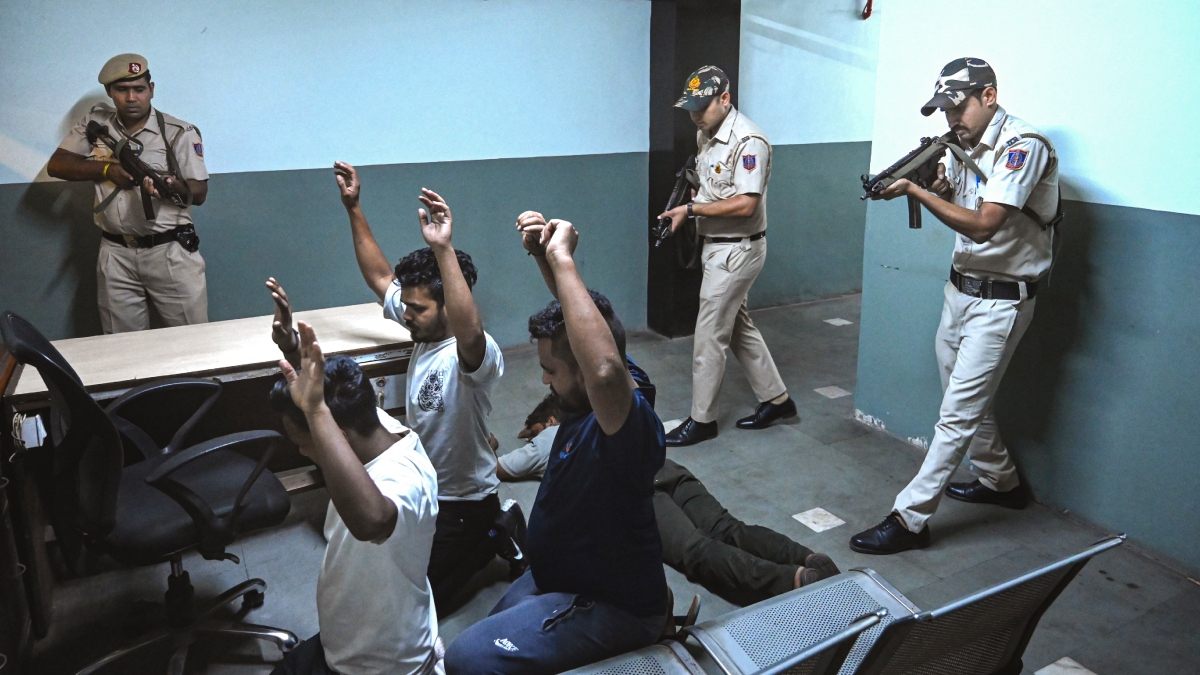How national capital is preparing for eventualities amidst Indo-Pak tensions
 Delhi Police personnel conduct a security mock drill | PTI
Delhi Police personnel conduct a security mock drill | PTI
In the backdrop of the escalating tensions between India and Pakistan after drone attacks in various parts of the border states, New Delhi has also been placed on alert.
The attacks have led to the cancellation of leaves for all government officials and the urgent installation of air raid sirens across the national capital. The Delhi Airport remains on high alert.
Around 3 pm on Friday, sirens were heard in central Delhi in order to ensure people are aware as to what they need to do in the event of any casualty of any sort. District Magistrates across the city have been tasked with installing both electrical and manual air raid sirens by Friday, with 500 sirens planned to enhance the capital’s warning systems.
On Thursday, the Delhi government issued an order through its Services Department, stating that no leaves would be granted to any officer or official until further notice. This directive, aimed at ensuring full preparedness for any emergency, extends to doctors and staff in Delhi’s government hospitals, as well as Delhi Police personnel.
In Delhi, the government has also conducted civil defence mock drills across 55 locations, simulating scenarios like air raids, urban fires, and casualty evacuations. These drills, part of a nationwide initiative by the Ministry of Home Affairs, aim to prepare citizens and officials for potential hostilities. Schools, markets, and residential complexes participated, with students and civilians trained on safety protocols.
Checks are ongoing at malls, markets, metro stations, hotels, colonies, and transport hubs. Bomb Disposal Squads (BDS) also carried out anti-sabotage checks at vulnerable locations across the capital. Authorities temporarily restricted public access to India Gate, with announcements instructing strollers to leave. Police clarified the move was routine.
Police have increased night patrolling and are deploying extra force in sensitive areas. Every district in the capital has been asked to stay prepared for emergencies. District magistrates are holding internal reviews on health systems and disaster response readiness.
The current crisis stems from the April 22 Pahalgam terror attack, which killed 26 people and prompted India’s retaliatory strikes codenamed 'Operation Sindoor'.
India